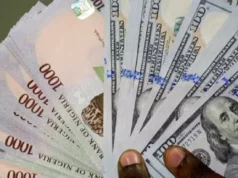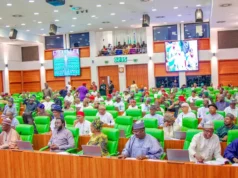The Central Bank of Nigeria has announced that there is no deadline on the circulation of old N200, N500, and N1000 bank notes.
The spokesperson of CBN, Sidi Ali Hakama, disclosed this in a statement on Thursday.
This comes amid speculations that the old Naira notes will cease to be legal tender from December 31, 2024.
READ ALSO: Old Naira: Abia Traders Appreciates CBN For Rejecting Reps Directive
However, the apex bank clarified that the claim is false.
CBN stressed that all bank notes remain legal tender.
“The attention of the Central Bank of Nigeria (CBN) has been drawn to discussions at different fora suggesting that the old series of the N200, N500, and N1,000 banknotes shall cease to be
legal tender on December 31, 2024.
“We wish to state categorically that such claims are false and calculated to disrupt the country’s payment system.
“For the avoidance of doubt, the order of the Supreme Court of Nigeria on Wednesday, November 29, 2023, granting the prayer of the Attorney-General of the Federation and Minister of Justice to extend the use of old Naira banknotes ad infinitum, subsists.
“Similarly, the CBN’s directive to all its branches to continue to issue and accept all denominations of Nigerian banknotes, old and re-designed, to and from deposit money banks (DMBs) remains in force.
“It will be recalled that the Supreme Court ordered that the old series of N200, N500, and N1,000 banknotes shall continue to be legal tender alongside the redesigned versions.
“Accordingly, all banknotes issued by the Central Bank of Nigeria (CBN) will continue to remain legal tender indefinitely.
“We, therefore, advise members of the public to disregard suggestions that the said series of banknotes will cease to be legal tender on December 31, 2024.
“We urge Nigerians to continue to accept all Naira banknotes (old or redesigned) for their day-to-day transactions and handle them with the utmost care to safeguard and protect their lifecycle.
“Furthermore, the general public is encouraged to embrace alternative modes of payment, echannels, in order to reduce pressure on the use of physical cash,” the CBN said.










